Micro-courses & Asynchronous Workshops
Training Portfolio
Just In Time, Anywhere, For Everyone Learning
DJA is known for our training. For decades we have designed and provided training solutions to organizations around the world. That means we have a lot of content across a diverse array of topics and variety of formats, from immerse cohort experiences to micro-courses.
Our courses are perfect for organizations that want to fast-track your EDI investment, expand your offerings or incorporate new content into your current Learning Management System.
DJA Micro-Course Collections
EDI Best Practices | Inclusive Management | Personal Development | Change Communication
Equity, Diversity, Inclusion And Accessibility Best Practices
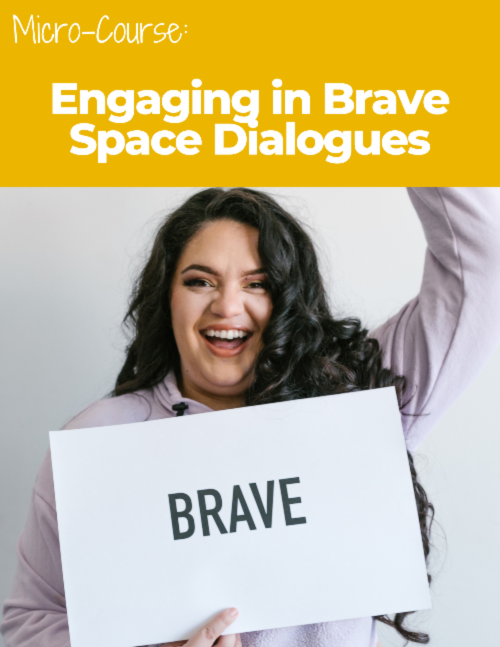
|
Engaging in Brave Space Dialogues Communicating about difficult topics is an inevitable part of the work experience and it is a manager’s responsibility to model surfacing topics of conversation that may go unspoken or ignored, and to demonstrate what accountability for their words and actions looks like in brave spaces. Managers can help create an environment where their team members can communicate without feeling like they will be judged or dismissed for their expression. This course uses case studies to ensure participants have practical knowledge and ability to immediately apply what you have learned. |

|
How to Start an EDI Conversation
Most of us have topics that we get nervous about discussing, particularly at work. Engaging in EDI conversations effectively requires a set of skills that can be learned and practiced. This micro-course is designed to provide 6 steps to set up an EDI conversation for success. The result of learning and practicing with these tools is more competence and confidence in EDI conversations. |
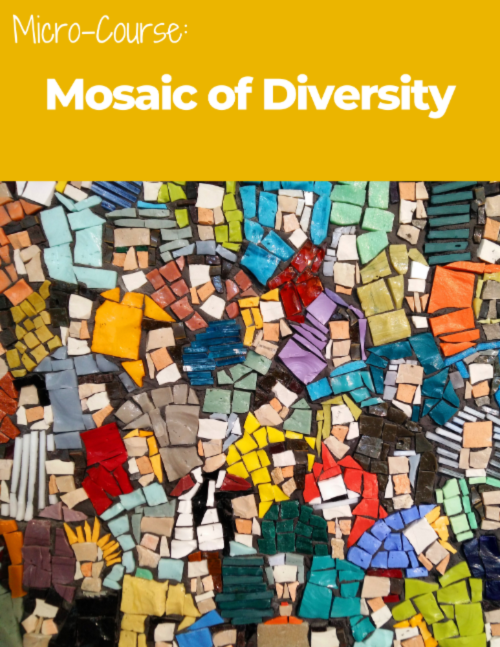
|
Mosaic of Diversity
Each person carries and reflects an array of characteristics–from personality and behavioral to cultural identities and lived experiences–that make us who we are. This course introduces a model, the Mosaic of Diversity, that invites reflection, naming and encourages sharing some of those dimensions as a foundational step on a personal EDI journey. Coupled with the model is a communication tool, and associated exercise, that encourages engagement with others. |
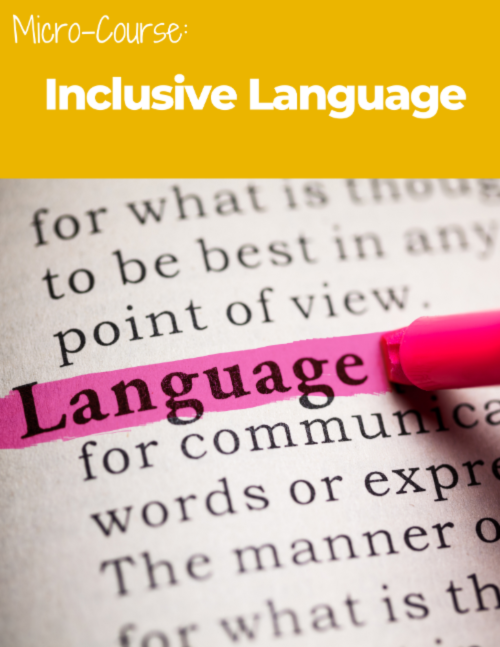
|
Inclusive Language
Have you ever been worried about using outdated words to describe people and groups? Are you concerned that your choice of words may potentially offend someone? If yes, you are not alone. Language sends a strong message, especially given the current level of public calling out of people for using words that are perceived as offensive or dated. Being intentional with your words conveys a genuine effort to truly see and honor people in a way that is most appropriate for them. This course provides a baseline of understanding, tips and techniques for using inclusive language in written and verbal interactions. |

|
Understanding Privilege
This course defines privilege and describes the role it plays personally and professionally. Participants will reflect on areas of personal privilege in the context of intersectional identities. Additionally, specific ways to leverage areas of privilege, to be a responsible ally and active champion will be provided. |

|
Micro-inequities, Micro-aggressions, and Micro-affirmations There are a variety of ways in which people can be treated that signal exclusion or inclusion. This course describes three–micro-inequities, micro-aggressions, and micro- affirmations–and provides guidance on how to identify and either avoid or in the case of micro-affirmations, integrate them into daily workplace interactions. Participants will be provided with actionable phrases for responding to micro-aggressions and micro-inequities, and for inserting inclusive practices. |

|
Cultural Competence as a Workplace Expectation
In a global and connected world, cultural competence is as essential for personal effectiveness as technical expertise and emotional intelligence. It is also widely misunderstood and therefore often underdeveloped and underleveraged. This course teaches participants how to meaningfully enhance their cultural competence including practical ways to demonstrate heightened levels of proficiency in a variety of workplace relationships and settings. |
Inclusive Management

|
Using Equity Lenses: Hiring and Inclusive Policy Change
Equity lives in the process. Organizations committed to equity are, in addition to training, equipping employees with structured tools, like an Equity Lens, for identifying and mitigating bias in workplace processes. This course describes what an Equity Lens is, how to develop and use them in the context of two popular bias-filled processes–hiring and policy. Participants will receive templates for developing your own Equity Lens, and examples of Equity Lenses used by other organizations. |

|
The Art and Science of Feedback
Feedback is one of the most requested forms of communication. People want to know how their effort is being perceived by others. Managers typically understand that they are responsible for providing feedback, but often do not realize that they are not giving enough of it, focusing too heavily on critique rather than affirmation, or not delivering feedback in a way that leads to learning and growth. |
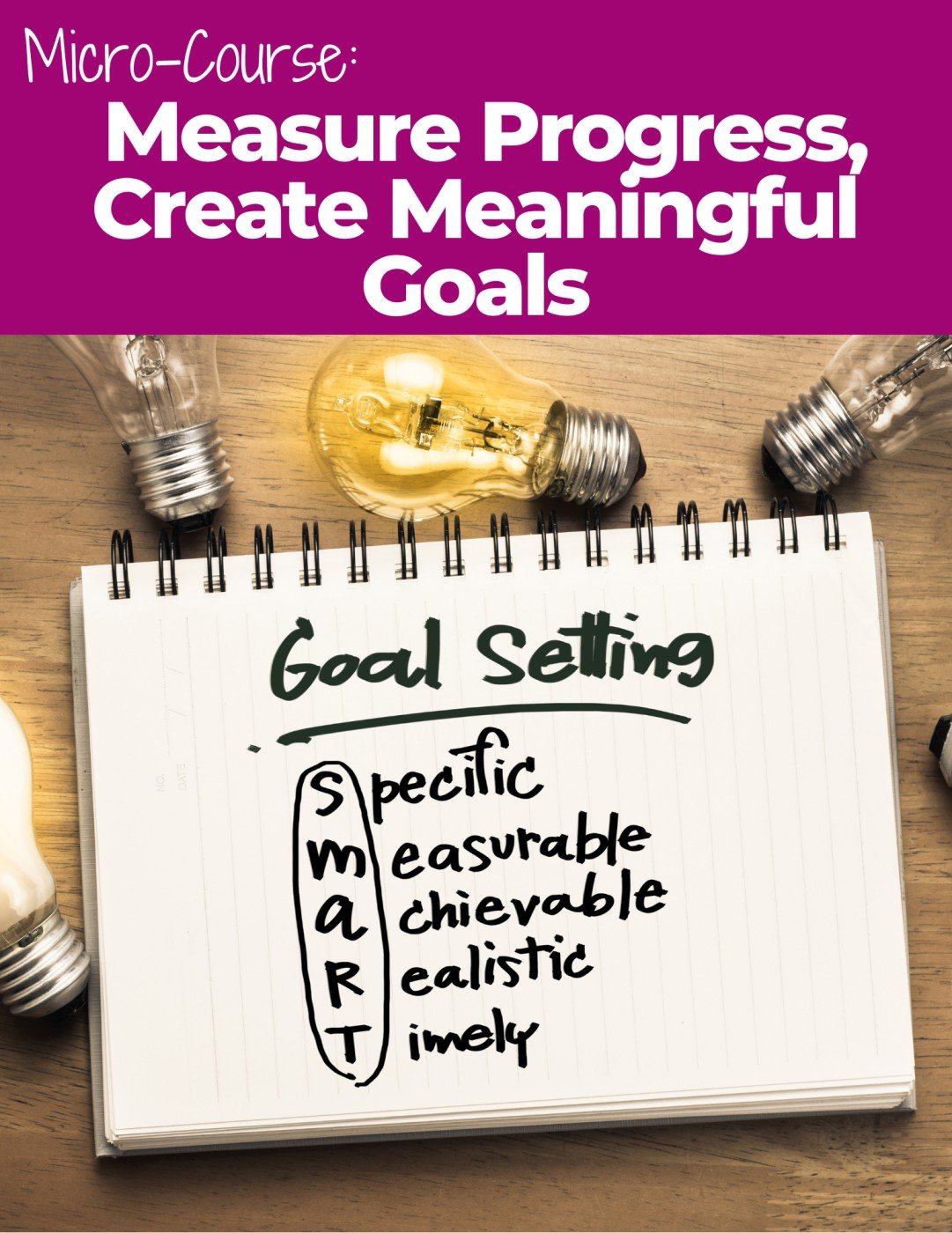
|
Measure Progress, Create Meaningful Goals
This course introduces a powerful framework for measuring individual achievement, and articulating meaningful stretch goals. Attainment of meaningful goals is essential for promotion, growth and personal satisfaction. Measurement of past performance, however, requires a slight shift in approach and a tool that can be put into practice immediately, personally, or with your team. |
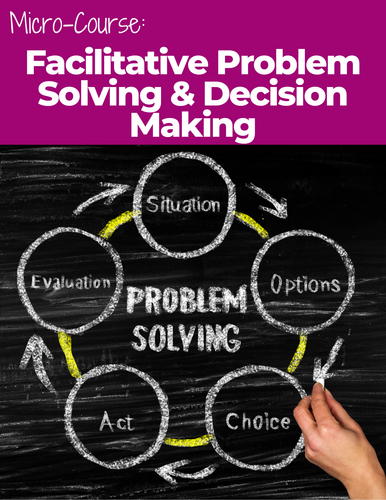
|
Facilitative Problem Solving & Decision Making
We often know the right answer; sometimes we just need a little help discovering it. This course describes a powerful communication technique that encourages thoughtful understanding of an issue, encourages exploration of various options, and results in a solid course of action that can be supported by others. Participants will learn how to use analytical framework to help you work through complex problems, and apply the same technique as you support colleagues or your team. You will take from this course a straightforward practice that can be immediately applied to increase transparency, buy-in and effective implementation of important decisions. |

|
Communicating Across Power Dynamics
What is power and why do I need to understand how it is present in my relationships? How can I use my power to empower others? What power dynamics exist in the workplace? How do I engage and encourage speaking truth to power in ways that lead to constructive outcomes? Every day, whether we know it or not, we are part of an integral network of power dynamics that requires conscious awareness, navigation, and sometimes shaking up. This course covers the role of power dynamics in the workplace and equips participants with techniques for communicating effectively across power relationships. |

|
Nurturing Motivation in Self and Others
This course takes a practical approach to motivation, assuming that all humans are motivated but the drivers of individual motivation vary person to person, potentially change over time, and may be culturally influenced. Importantly, participants in this course focus on their own motivators, and are equipped with techniques for better understanding the motivational needs of their team. |

|
Inclusive Onboarding
Onboarding is a crucial step in nurturing an inclusive workplace. It’s also a critical ingredient in employee engagement. Like other steps taken to increase inclusion, acting with intention ensures that organizational values and desired outcomes are centered as new employees are welcomed. This course equips participants to create a customized inclusive onboarding experience in your own organization. |
On Demand Workshops
.png)
|
Unpacking Racism Workshop In this workshop, participants learn to recognize their own racial and ethnic identities and then learn strategies for sitting with the discomfort of talking about race in the workplace. Participants learn about individual, interpersonal, institutional, and systemic racism, and become motivated to examine their biases, leverage their privilege, and create equitable communities. This is a 50-minute asynchronous workshop. |
.png)
|
Understanding and Combating Imposter Syndrome Topics include learning to identify what Imposter Syndrome is and where it originates from, highlighting the risk factors of worsening imposter syndrome, exploring the ways to undo internalized imposter syndrome, and naming strategies for teams to support one another.
|
.png?width=1000&height=200&name=CR%20X%20DJA%20Logo%20(2).png)
